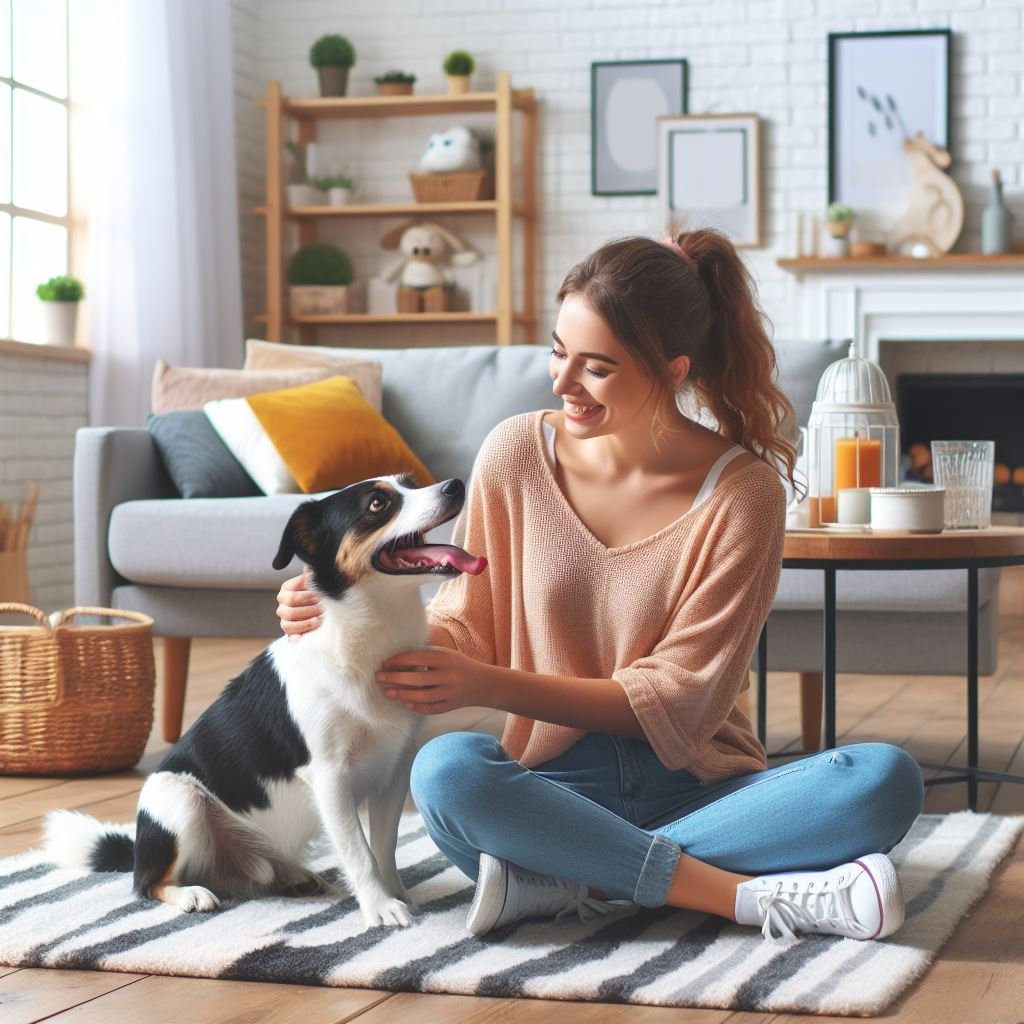Living with a reactive dog can be challenging, but with the right strategies and a safe home environment, you can create a harmonious living space for both you and your furry friend. In this article, we will provide you with practical tips on how to establish routines, create designated spaces, and manage interactions to ensure a safe and happy home for your reactive dog.

Establishing Routines
Reactive dogs thrive on consistency and predictability, so it’s important to establish routines in your daily life. Set a regular schedule for feeding, exercise, and training sessions. This will help your dog feel more secure and reduce their anxiety levels. Stick to the routine as much as possible, even on weekends or during holidays.
Creating Designated Spaces
Creating designated spaces for your reactive dog can provide them with a sense of security and help manage their behavior. Set up a comfortable and quiet area in your home where your dog can retreat when they need some alone time. This can be a crate, a specific room, or even a cozy corner with their bed and toys. Make sure this space is off-limits to other pets and children, so your dog can have a safe haven to relax and recharge.
Managing Interactions
Interactions with other pets and people can be a source of stress for reactive dogs. It’s important to manage these interactions carefully to avoid any potential triggers or conflicts. When introducing your reactive dog to new people or animals, do so gradually and in a controlled environment. Use positive reinforcement techniques and reward your dog for calm behavior. If your dog shows signs of discomfort or aggression, remove them from the situation immediately and consult with a professional dog trainer or behaviorist.
Training and Enrichment
Training is essential for managing a reactive dog. Enroll in obedience classes or work with a professional trainer who specializes in reactive dogs. Positive reinforcement techniques, such as clicker training or reward-based training, can be highly effective in teaching your dog new behaviors and helping them overcome their reactivity. Additionally, provide plenty of mental and physical enrichment for your dog through puzzle toys, interactive games, and regular exercise. This will help keep their minds stimulated and their energy levels balanced.
Seeking Professional Help
If you’re struggling to manage your reactive dog’s behavior on your own, don’t hesitate to seek professional help. A qualified dog trainer or behaviorist can provide you with personalized guidance and support tailored to your dog’s specific needs. They can help you develop a behavior modification plan, teach you effective training techniques, and offer ongoing support throughout your journey.
Conclusion
Living with a reactive dog requires patience, understanding, and a safe home environment. By establishing routines, creating designated spaces, managing interactions, and seeking professional help when needed, you can create a safe and happy home for both you and your furry friend. Remember, with time, consistency, and love, you can help your reactive dog lead a fulfilling and balanced life.
- Scent Games for Smart Dogs: Unleash Their Hidden Talent!Introduction to Scent Games The concept of scent games revolves around leveraging dogs’ natural sniffing abilities, which are intrinsic to their character as scent-oriented animals. These activities are not only beneficial for purebred dogs but can also be valuable for mixed breeds and rescue dogs. By engaging in scent games, dogs utilize their keen sense… Read more: Scent Games for Smart Dogs: Unleash Their Hidden Talent!
- Mastering the Art of Fur Care: Top Tips for Pet GroomingIntroduction to Pet Grooming Pet grooming plays a pivotal role in ensuring the health and well-being of our furry companions. Regular grooming is essential not only for maintaining hygiene but also for the overall health of pets. It fosters a routine that can help detect potential health issues before they escalate, such as skin infections,… Read more: Mastering the Art of Fur Care: Top Tips for Pet Grooming
- Common Pet Health Issues: What Every Pet Owner Should KnowIntroduction to Pet Health Maintaining the health of pets is a fundamental responsibility for any pet owner, as the overall well-being of our furry companions relies heavily on the care they receive. Just like humans, pets require regular check-ups, vaccinations, and a balanced diet to thrive. It is crucial for pet owners to recognize that… Read more: Common Pet Health Issues: What Every Pet Owner Should Know
- House Training 101: How to Potty Train Your Puppy or KittenIntroduction to House Training House training is an essential aspect of pet ownership that involves teaching your puppy or kitten to eliminate waste in designated areas. Proper house training not only aids in maintaining a clean living environment but also fosters a strong bond between pet and owner. It is a foundational skill that promotes… Read more: House Training 101: How to Potty Train Your Puppy or Kitten
- The Ultimate Guide to Pet Nutrition: What to Feed Your DogUnderstanding Your Dog’s Nutritional Needs Understanding your dog’s nutritional needs is fundamental to ensuring its health and well-being. Like humans, dogs require a balanced diet consisting of various macronutrients and micronutrients to thrive. The primary macronutrients are proteins, fats, and carbohydrates, each serving vital roles in a dog’s diet. Proteins are essential for growth, maintenance,… Read more: The Ultimate Guide to Pet Nutrition: What to Feed Your Dog
